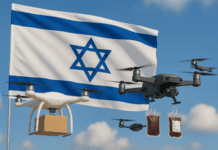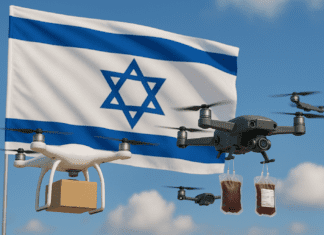
This post is also available in:
 עברית (Hebrew)
עברית (Hebrew)
By ARIE EGOZI
We don’t see it but this danger is around the corner waiting to hit.
A cyber attack on Israeli infrastructure may include air traffic control installations.
In recent years, Israel has been under a constant cyber attack, and the government has ordered the General Security Service to take every needed step to counter those attacks.
The National Cyber Defence Authority (NCDA) unit, which is responsible for protecting Israel’s national infrastructures against cyber attacks, assumes the coordination of protecting certain infrastructure, banks and mobile carriers.
Sources told i-HLS that the air traffic control is also included in the list and in a very high place.
Israeli officials consider the cyber attacks as an act of war and some were quoted saying that “This threat is real like rockets that hit our cities”.
This means that the proper Israeli organizations will try and locate the source of the attacks and make an effort to neutralize it .
As it looks now, this is an all-out war, and the concerns are high as signs prove that vital national installations are targeted almost daily.
The Israeli air traffic control (ATC) system works very closely with this of the Israeli air force (IAF). Therefore any attempt to disrupt one of them will affect the other and may cause chaos with “very extreme scenarios”.
So the decision that was made in recent days is to mobilize all the assets that Israel disposes, to defend the Israeli vital systems including its ATC system from organized or sporadic cyber attack.
What is very clear is that many of the budgets that were traditionally channeled to the deployment of advanced systems that are aimed at defending Israel from attacks either by missiles, rockets or enemy aircraft, will be rerouted now to the new cyber war.

























